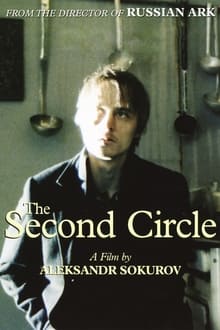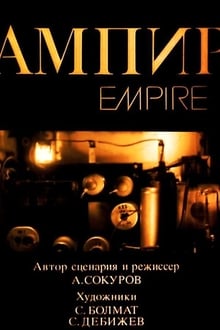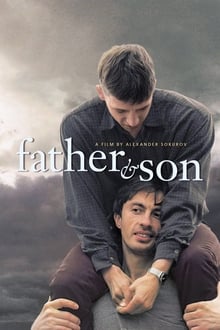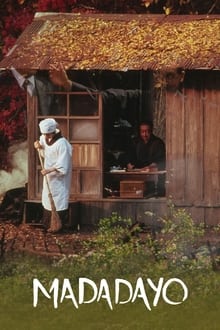A man tries to come to terms with his father's death and to deal with the mundane details of his burial in a society cut off from spirituality.
This bleak late soviet-era drama follows the career of Malyanov, a young medical school graduate who has been sent to work in Turkmenia. Here he runs into a hodge-podge of people of differing ethnicities, all of them victims of the government's earlier mania for relocating and eliminating whole ethnic groups and classes of people. These desperately unhappy people are unable to find any pleasure in this diverse companionship, but instead are antagonistic to it, and often resort to desperate measures in their doomed attempts to ease their pain.
A rich woman accidently comes across a conversation on the phone about people talking about a murder.
The action in this lavishly produced film takes place at an oddly ark-shaped mansion during World War I, and in spirit (although not in story) it reflects the play which inspired it, the ferociously antiwar Heartbreak House by George Bernard Shaw. A large group of family and friends have gathered at this country house to dance, drink, and converse. Their conversation, in particular, is adorned with erudite literary references and quotations. Despite their apparent refinement, their preoccupations are simple: sex and violence. Disquieting images break the tranquility of the vacationers' inappropriate idyll: some of these include documentary footage of starving African children, images (both real and re-enacted) of George Bernard Shaw going about his daily life, and a corpse coming to life on an autopsy table, only to cheapen that miracle by scolding a group of women. The music used in the film ironically points to its disturbing message and is uniformly anachronistic.
Set in the early 1920s after the end of the Russian Civil War, Red Army soldier Nikita returns to his hometown to see his partner Lyuba, both of whom are scarred by the trauma of the Russian Empire of yesteryear.
In this dreamlike film, a nameless father and his son, Aleksei, live together in an apartment in St. Petersburg. Aleksei's mother has died and consequently the two have a very close relationship. When Aleksei acquires a girlfriend, she refuses to take a back seat to his bond with his dad, and breaks up with him. Aleksei is also experiencing nightmares, dreading separation from his father to be a part of the military as his father was.
《一代鮮師》乃日本知名電影導演黑澤明在1993年執導的電影,也是他生前最後一部作品。
關於日語片名「まあだだよ」的由來,乃日本小孩玩捉迷藏時捉人者詢問「躲好了沒?」,匿藏者答曰「未得唷!」。片中男主角內田百間是一位生性豁達、看破生死離別的教師,所以面對死亡,他總是調皮地對死神說「未得唷,我還不想離開這個人世間」。因此臺灣將片名翻譯成《一代鮮師》,香港則譯作《裊裊夕陽情》。此外,片中感念教師恩情的學生們所組成的「摩阿陀會」乃「まあだだよ」的諧音。
إذا كنت ترغب في الحصول على نسخة من هذه القائمة سيتم تصديرها إلى ملف CSV ، اضغط على زر "تصدير" أدناه. سنقوم بإنشاء النسخة وإرسالها إليك عبر البريد الإلكتروني. استنادًا إلى حجم قائمتك ، يمكن أن يستغرق ذلك بضع دقائق لإرسالها.






